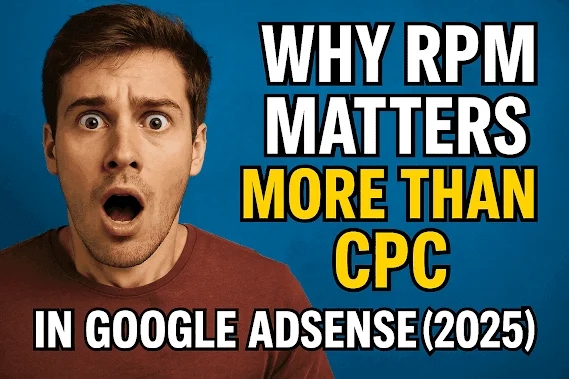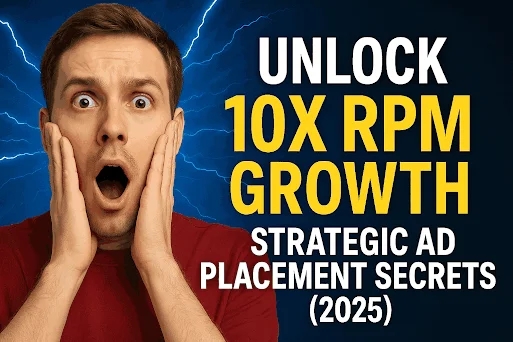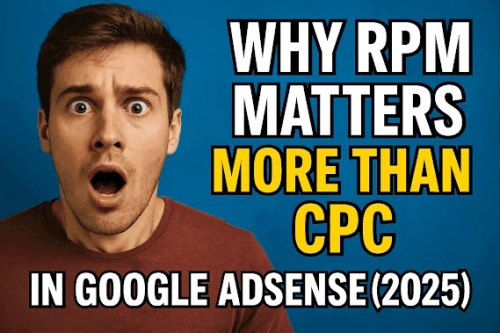Why RPM Matters More Than CPC in Google AdSense (2025)
Everyone talks about CPC (Cost Per Click) when it comes to AdSense. But in 2025, the real metric that determines how much you earn is RPM — and if you ignore it, you’re leaving money on the table.

This post will outline the major distinction between RPM and CPC, why RPM is of greater significance, and how to multiply your RPM quickly (even in case your CPC is low).
What’s the Difference Between CPC and RPM?
CPC How much you earn **per ad click** (*Example= $0.5 Per Click)
RPM How much you earn **per 1,000 page views** (regardless of clicks) | (*Example $15 RPM= $15 per 1,000 views )
Why CPC Alone Is Misleading
Let’s say:
- Blog A has $1 CPC but only gets 5 clicks per 1,000 views = $5 RPM
- Blog B has $0.30 CPC but gets 50 clicks per 1,000 views = $15 RPM
Who earns more? Blog B, even with lower CPC.
RPM = The Real Income Metric
RPM includes all types of ad earnings:
- Clicks (CPC)
- Impressions (CPM)
- Page-level engagement
- Smart bidding by advertisers
That’s why Google focuses on RPM as your main dashboard stat in 2025.
How to Increase Your RPM in 2025
1. Improve Ad Placement
We covered this in Previus RPM Blog — strategic placement = more visibility + more engagement.
2. Write Long-Form, High-Intent Content
RPM is higher when your content:
- Holds attention longer (boosts engagement)
- Matches advertiser demand
- Solves real problems (especially in finance, tech, legal, or education)
3. Drive High-Quality Traffic
Not all traffic is equal. RPM is higher for:
- USA, UK, Canada, Australia visitors
- Desktop traffic (usually higher engagement)
- Returning readers (higher trust)
4. Limit the Number of Ads
Too many ads can:
- Decrease user trust
- Lower engagement
- Hurt your site speed
Stick to:
- 2–3 display units per page
- 1–2 in-article ads for longer content
5. Use Google AdSense Experiments (A/B Testing)
In your AdSense dashboard:
- Test ad styles
- Try different formats (e.g., display vs. in-feed)
- Compare layout changes
Let Google auto-optimize for higher RPM.
Bonus Tip: Track RPM by Page, Not Just Sitewide
Inside Google AdSense → Reports → Pages
This tells you which content earns more per 1,000 views, so you can:
- Update it more
- Link to it from other posts
- Create more like it
Final Thoughts
CPC might look sexy, but RPM is what fills your wallet. In 2025, smart bloggers and publishers focus on optimizing user experience + ad strategy + high-intent content to grow RPM steadily.
Share
What's Your Reaction?
 Like
0
Like
0
 Dislike
0
Dislike
0
 Love
0
Love
0
 Funny
0
Funny
0
 Angry
0
Angry
0
 Sad
0
Sad
0
 Wow
0
Wow
0













